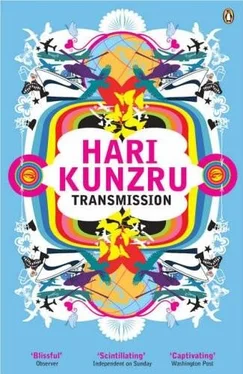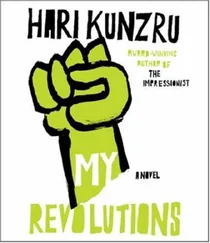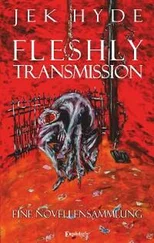Pressing the stewardess button for a second refill of coffee, he played with the armrest controls and discovered that Naughty Naughty, Lovely Lovely was about to start on the in-flight Hindi channel. N2L2 was a big hit, and, though he had already seen it seven times, he sat back joyfully to watch it again. More than joyfully. Were he not a committed scientific rationalist, he would have taken it as a sign, a blessing on his endeavour , that this film was the airline’s entertainment choice. After all, N2L2, winner of eight Filmfare awards and the first Rocky Prasad picture to star newcomer Leela Zahir, was the reason he came to be on the plane in the first place.
Not everyone would make a major life decision on the basis of a movie. To make any kind of decision at all on the basis of Naughty Naughty, Lovely Lovely , an entertainment so light as to be almost gaseous, is the mark of a true devotee of popular cinema. Arjun was such a devotee, one of the hordes who queued for tickets during N2L2 ’S first weekend of release, grossing it ten crore rupees and making it one of the biggest openers in Indian cinema history. He had been expecting a lot (he had always liked Rocky Prasad’s work), but, sitting in the stalls of the Aakash Cineplex, he found more than he imagined possible: the film was nothing less than a call to change his life. In its hero he found a role model even more potent than the great Amitabh Bachchan, whose gangly form had dominated his teenage years. So, as the great jet engines pushed him on towards California, he toggled the volume and adjusted the spongy earphone covers with a kind of reverence, the attitude of a man about to commune with his innermost hopes and dreams.
N2L2 is a love story. Its hero, Dilip, is a home-loving boy. Despite his good looks and college education, he is content to laze around on his father’s farm, set amid the picturesque yellow mustard fields of the Punjab. He does little except lie about in these fields, watching clouds, chewing on stalks of grass and flirting with the troupes of attractive peasant girls who trip gaily back and forth carrying water jars and large squares of coloured silk. Dilip sings about the clouds, the girls, and his general sense of well-being, which is immediately disturbed by the arrival of Aparna, a beauty from London, back in the old country to visit her relatives.
Aparna (played by Leela Zahir) is everything Dilip is not. Though she has traditional values, as we witness in a montage of winsome roti cookery, demure prayers and well-manicured hands pressing the feet of aged relatives, she is also a thrusting investment banker, driven to career success by a wish to avenge her father’s ruin in a long-running lawsuit. In an amusing mistaken-identity scene, Dilip speaks to her roguishly, thinking that the pair of dark eyes behind the veil (she is traditionally and demurely dressed) must belong to some village girl, temporarily without silk square or water vessel. He is taken aback by her college-educated retorts, and falls instantly in love.
Despite Dilip’s attempts to impress Aparna by riding a horse very fast, standing on his hands and boxing the ears of a group of eve-teasers in the marketplace, she remains unmoved, singing to him that the man who wins her heart must have more than a distinguished nose, flat abs and a happy-go-lucky manner; he must also command the respect of his fellow citizens and hold down a highly paid job in commerce or industry. Dilip is confused, until he spies Aparna and her uncle praying before a picture of her dead father. Eavesdropping on their conversation, he learns of the lawsuit, and of the patently very evil Christo, a well-connected London financier and underworld don who drove the dead man to alcoholic collapse.
That evening Dilip spots Christo on CNN World Business Report and realizes that the key to his beloved’s heart lies in acquiring NRI status. He vows to change his life, and become the man Aparna wants him to be. Bidding farewell to his father, he sings that he will tarry among clouds and mustard fields no more, but will go forth to seek his destiny in the international capital markets. When Aparna flies back to London, he follows her, pausing briefly at Heathrow to rescue the stolen luggage of a European bigshot, before heading into the city centre. There he encounters a series of snooty British types who sing to him of his country manners and woeful desi ignorance, as he searches for a cheap hotel in the vicinity of Buckingham Palace.
Sidetracked by the delights of tourism, Dilip visits Madame Tussaud’s and Covent Garden, then foolishly exhausts his meagre funds by taking repeated rides on the London Eye. He is sitting at a table in the Hard Rock Café, facing the chilling realization that he will be unable to pay for his chicken burger combo, when he bumps into his friend the grateful Eurobigshot, who reveals that he heads the biggest investment bank in the City and would like to offer Dilip a job. Dilip agrees, Bigshot settles his bill, and our hero moves from his sleazy Buckingham Palace dive into a riverfront apartment with a view of Big Ben.
Dilip discovers that a childhood of haggling in the Jalandhar Market has given him an aptitude for finance, and in no time at all he is vastly wealthy. Spurning the advances of Bigshot’s beautiful daughter, he decides the time has come to make himself known to Aparna, who has been passing the time in a montage of demure praying and chewing a pencil at her desk. As a boring meeting comes to a climax, Dilip strides in, buys the company and sings to Aparna of his undying love. She is bowled over and agrees to be his, subject to her uncle’s blessing. They go walking by the Thames, on the white cliffs of Dover, on the battlements of Windsor Castle and briefly in the Swiss Alps, wearing a variety of outfits and describing the life they will lead together once they are united in marriage.
Everything is joyous. It is holi, so Dilip and Aparna run through Piccadilly, throwing coloured dye at each other and annoying policemen. In a fantasy sequence, the action switches to the Punjab, and Aparna (whose modern London clothes have been swapped for a traditional wet sari) sings that Dilip has won her heart through his bravery, decisiveness and diversified investment portfolio. Evil Christo chooses this moment to kidnap Aparna, whom he intends to make his wife. His henchmen beat up Dilip, leaving him for dead among the pigeons in Trafalgar Square. As Dilip’s prone body is pecked by hungry birds, the villains take Aparna to the gang’s underground hideout beneath Brighton Pavilion. Luckily Dilip is helped by an old pigeon-feed vendor who was himself ruined by Christo many years ago. Mr Vilson, the vendor, leads Dilip to the underground hideout, where together they spray a high-pressure hose over the gang, washing them all into the English Channel. The police arrive, arrest the evil boss and take him off to prison. Aparna’s uncle and Dilip’s father (who are passing through Brighton on their way to Chandigarh) bless the union. Dilip and Aparna garland each other, singing the title song:
Something naughty
Can be lovely
Something lovely
Can be naughty
Naughty naughty
Lovely lovely
Love!
As the end credits rolled over a dissolve of a queue of relatives feeding the happy couple sweetened rice, Arjun experienced the same sense of potential that had struck him so forcefully on his first seven viewings. As he had argued to Aamir over frequent coffees at the Internet Shack, Dilip was him. It was as simple as that. He was a dreamer. He had been idling his time away. If he wanted to live in reality, instead of in his imagination, it was time for a change. How could he not see this movie as a parable?
Читать дальше











